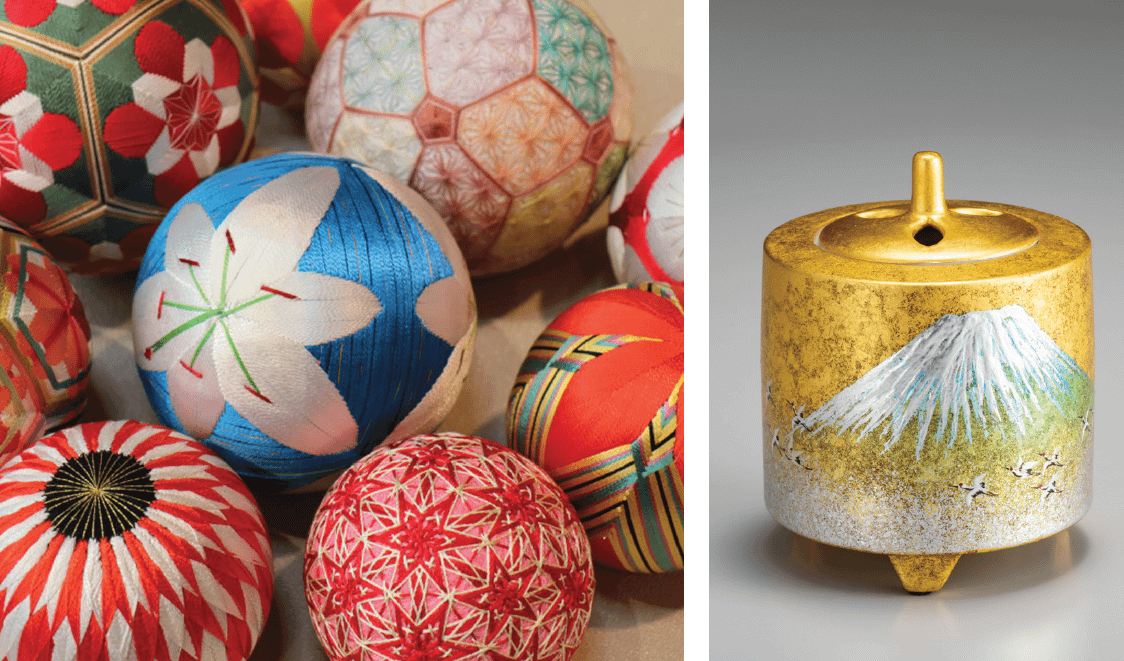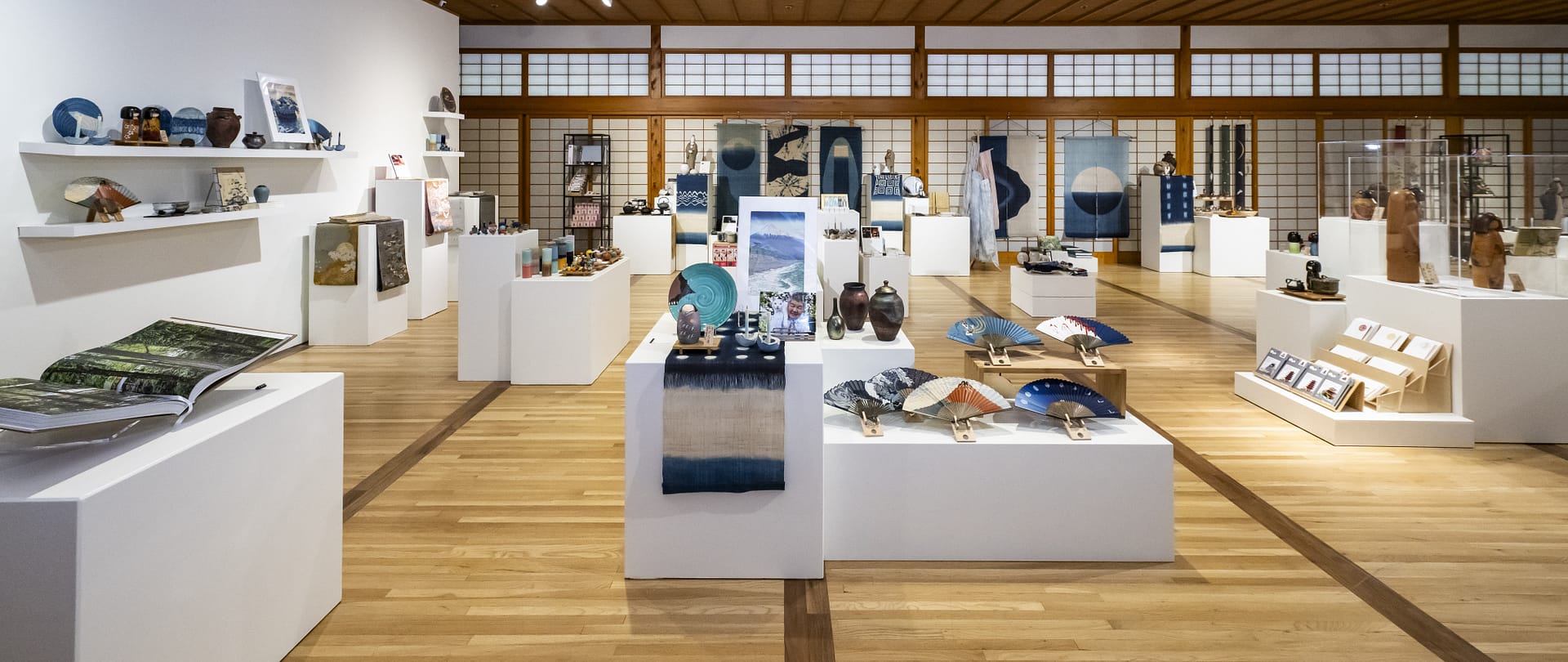
PORTLAND, Ore. – June 24, 2024 – Behind the Shoji, opening Saturday, 6/29 and running through Monday, 9/2 in Portland Japanese Garden’s Pavilion Gallery, is one of the Garden’s most beloved summer traditions. An annual show and sale of Japanese and Japanese-inspired wares, visitors can peruse and purchase from a variety of curated items often unavailable short of a visit to Japan itself. What makes this elevated and distinctive shopping experience stand out is the level of care and the miles traveled that go into determining which items will be available.
Garden staff travel to Japan yearly to attend the Tokyo International Gift Show and meet with craftspeople in their studios and stores to curate the unique items for Behind the Shoji. In doing so, this helps the Garden not only provide support to the livelihoods of craftspeople, but also offer Garden visitors a unique product selection that helps create a greater understanding of Japanese culture.

Guests to Shoji this year will see a range of different goods and wares including some captivating new items that feature kinpaku, or gold leaf. Among the items available for sale will be incense holders, jewelry, and glass vases that showcase this stunning aesthetic. For those interested in adding a bright pop of color to their home, a new item available this year will be temari, or handballs. Temari were introduced to Japan from China around the seventh century—they are cotton ball intricately hand-wrapped in threads. They are reflective of a style that originated in Japan’s Edo era (1603-1868) and are customarily given to daughters ahead of their wedding to wish them a long and happy marriage.
Behind the Shoji headlines a summer filled with many exciting opportunities, including:
- Tanabata, the Star Festival on Sunday, 7/7 | One of the five seasonal festivals celebrated in Japan since the 8th century, the Star Festival at Portland Japanese Garden will feature musical performances, storytelling of the Tanabata folk legend, and wish writing, in which visitors can write a wish and add it to the colorful display of tanzaku (wish strips) on bamboo in the Garden’s Crumpacker Bamboo Allee.
- Painting with Thread: The Art and Culture of Fukusa | Commemorating the recent donation of The Peter and Beverly Sinton Japanese Gift and Altar Cover Collection, this exhibition showcases the art of gift-giving through the beauty of fukusa. Fukusa are ornate textiles traditionally made of Japanese silk that were draped over formal gifts and presented amongst prominent families during the Edo period (1603 – 1868) through Taishō period (1912-1926) in Japan. This is the first time this underappreciated Japanese art form has been exhibited at the Garden.
- Beat the Heat of Summer | Situated at a higher elevation than much of its home city, Portland Japanese Garden is a great way to get outside and stay cooler than in other parts of the area. With shaded paths, bubbling streams, and frolicking koi, the Garden is the perfect place to get some time in nature away from higher temperatures.

More Information
Hours
- 10:00am-6:00pm (last entry at 6:00pm) | Wednesday – Monday, closed Tuesdays
- Behind the Shoji is open during Garden hours
- Tickets to the Garden can be purchased at tickets.japanesegarden.org
- The event page for Behind the Shoji can be found here
- More about Behind the Shoji can be read here
Admission
- Adult: $21.95
- Senior (65+): $18.95
- Student (with ID): $17.95
- Youth (6-17): $15.95
- Child (5 and under): Free
- Members: Free
Visual Assets
Images can be found in this Dropbox folder. Photographer name is in the file name. Please stylize the credit as “Courtesy of Portland Japanese Garden, photo by [fill in name].” If no photographer is listed, “Courtesy of Portland Japanese Garden” will suffice.
Media Contact
Will Lerner | Communications Manager | (503) 542-9351 | [email protected]
About Portland Japanese Garden
Portland Japanese Garden is a nonprofit organization originally founded in 1963 as a place for cross-cultural understanding following World War II. A hallmark in the City of Portland, the Garden was founded on the ideals of peace and mutual understanding between peoples and cultures. Portland Japanese Garden is considered the most authentic Japanese garden outside of Japan and the foremost Japanese cultural organization in North America.